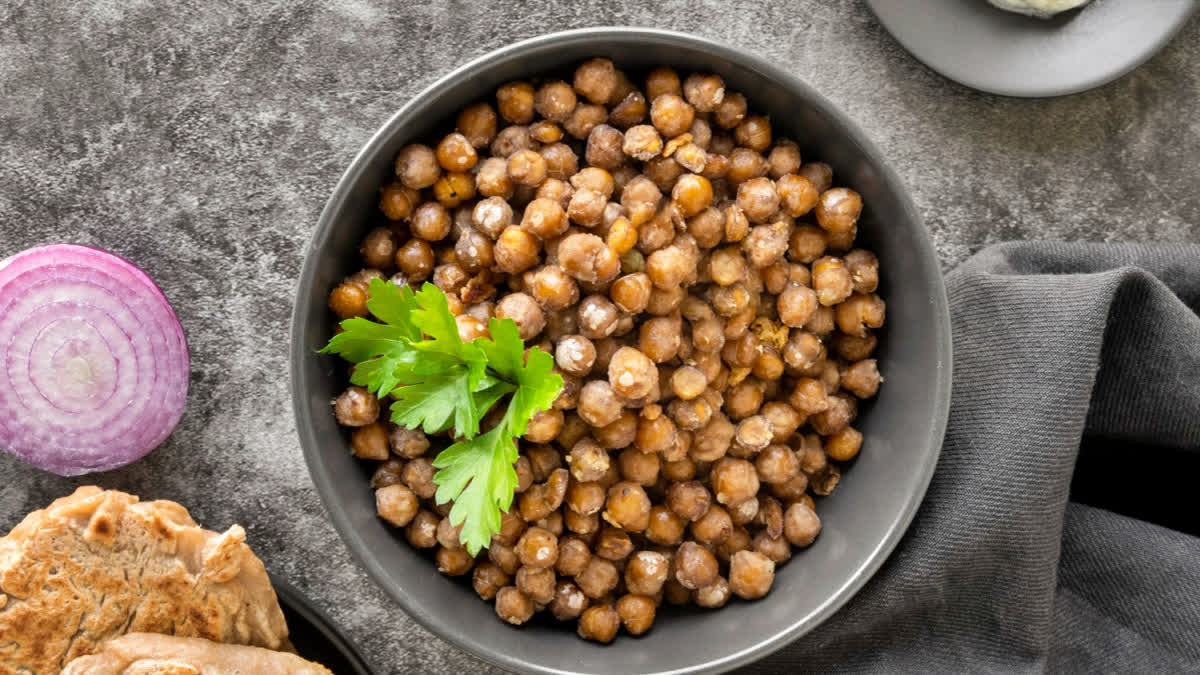Black gram (aka kala chana) may not have the flashiness of quinoa or the Instagrammability of avocado toast, but don’t let its humble appearance fool you. According to a study published in the National Library of Medicine, black gram boasts a low glycaemic index (GI). Foods with a low GI release glucose into your bloodstream at a slow and steady pace, preventing the dreaded sugar spikes that diabetics are all too familiar with.
What is this glycaemic index, you ask? Think of it as a measure of how fast a food item raises your blood sugar after you eat it. Foods with a high GI are the sprinters (delivering quick, often overwhelming bursts of sugar) while low-GI foods like black gram are the marathon runners, pacing themselves steadily.
Why Diabetics Should Befriend Black Gram
Diabetes is a relentless companion, one that over 500 million people worldwide have to contend with daily. While it can’t be cured, managing it is an art form (a delicate balance of diet, exercise and mindful living). Enter black gram: a nutrient powerhouse that not only nourishes but might also keep your blood sugar in check.
“Black gram’s low glycaemic index isn’t its only superpower. It's also packed with fibre, which acts like a traffic cop for your digestion, slowing down the absorption of sugars and keeping blood sugar levels stable. Add to that a generous helping of protein, and you’ve got a food that doesn’t just sustain you but also helps repair and build your body,” says dietician Shweta Lokhande from Mumbai.
While black gram is an excellent choice for diabetics, it’s always wise to consult with your doctor or dietician before making major dietary changes. Your health is a bespoke recipe—what works for one person might not work for another.
More Than Just a Sugar Slayer
Black gram isn’t just good for managing diabetes. It’s a full-on health ambassador. Here’s what it brings to the table:
- Essential for muscle repair and growth.
- Keeps your digestion smooth and your blood sugar levels in check.
- Rich in calcium, potassium, and vitamin C to keep your bones strong and your immune system humming.
- Sprouted black gram is particularly rich in antioxidants like vitamin C, which act as your body’s bouncers, keeping diseases at bay.
- Its high fibre content keeps you full for longer, making it a great snack for those looking to shed a few pounds.
How To Incorporate Black Gram Into Your Diet
The beauty of black gram is its versatility. It’s a star ingredient in Indian kitchens, but its potential stretches far beyond the usual dal. Here’s how you can incorporate it into your meals:
The Classic Chaat: Boil black gram, toss it with diced tomatoes, onions, cucumbers, coriander, and green chilies. Add a squeeze of lemon and a sprinkle of salt. Voilà! A healthy, tangy snack that’s as delicious as it is nutritious.
Salad Topper: Add boiled black gram to your favourite salad for an extra protein and fibre boost.
Comforting Curry: Simmer it with spices, onions, and tomatoes for a hearty curry that pairs perfectly with roti or rice.
Simple Snack: Roast black gram with a pinch of salt and chili powder for a crunchy, guilt-free treat.
Other Health Benefits
Black gram’s benefits don’t stop at blood sugar control:
- It aids digestion, relieving constipation and bloating.
- Strengthens bones and joints, thanks to its calcium content.
- Prevents anaemia with its iron-rich profile.
- Helps manage blood pressure with its potassium levels.
So, the next time you’re staring at your kitchen cabinet, wondering what to cook, soak some black gram overnight. Sometimes, the best solutions to life’s problems are the simplest ones... and they come in a bowl.
Disclaimer: The information provided in this health article is for general informational purposes only and is not intended as medical advice. It is not a substitute for professional healthcare consultation, diagnosis, or treatment. Always seek the advice of your physician or other qualified health provider with any questions you may have regarding a medical condition.



